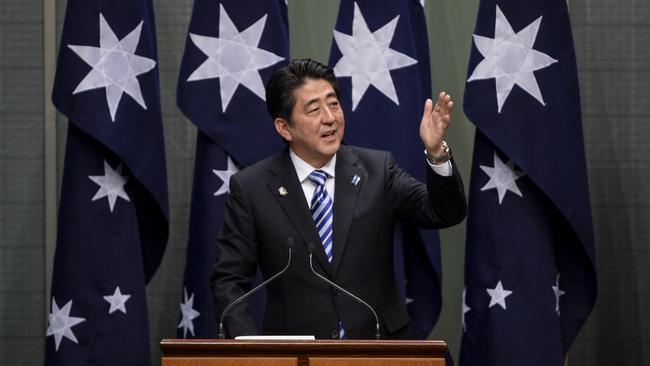
Only a non-Western leader of Abe’s stature and tenacity could have brought India out of self-sufficiency and into a democratic partnership with Japan, the US and Australia, and thus given the Quad the lasting capability to counter Beijing’s global designs. There’s a vast amount of work yet to be done to ensure New Delhi is brought consistently into the leading counsels of the free world, yet thanks to Abe, that’s now getting under way. With the “no limits” partners in Beijing and Moscow well and truly on the march, if the liberal global order is to endure, decades hence, that will be Abe’s historical legacy.
As prime minister, it was my practice to try to begin my dealings with other leaders with something that was true about their country and that I knew they’d really like to hear. At my first prime ministerial meeting with Abe, while the cameras were still rolling, I’d assured him that “history should not be used as a weapon against Japan” because “all countries do terrible things in war”; and that “Japan has been an exemplary international citizen since 1945”. It had always struck me as punitive that Beijing persisted in holding the 1930s invasion against contemporary Japan – despite Japan’s consistent post-war efforts at atonement.
The Chinese leadership simply couldn’t let the past go, and used it to create a false moral superiority against an offshore island that had never accepted tributary status. At the 2014 East Asia Summit in Myanmar, at a break in proceedings, I found myself in a knot with Abe, Chinese Premier Li Keqiang, and the Sultan of Brunei. Li was berating Abe to the point of jabbing him in the chest over an old atrocity. A very loud interjection to the sultan about how much he must hate the British distracted them enough for me to tell Li that “history is a good teacher but a bad master”.
One of the early dilemmas the Abbott government faced was what to do about submarines. A decision on replacing the Collins class should have been made several years earlier but the former government had never got beyond the announcement that our fleet should be expanded to 12. The last thing I wanted was Collins Mark II, where a foreign design was radically revised and then built in Australia at great expense and delay (even if it belatedly became a capable boat). The expert advice was that Japan made the world’s best conventional sub. So in April 2014, on the same trip that finalised the Australia-Japan FTA, I started to explore with Abe whether Japan might provide us with the Soryu class. Only an intimate friend would have agreed to put this process in train, as submarines (even conventional ones) are the “crown jewels” of weapons systems. We both knew a submarines partnership, more so, even, than a formal treaty, would turn our countries into the closest of military allies.
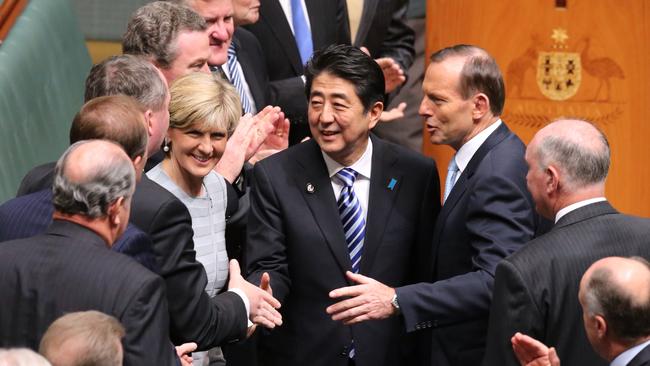
Eventually, he agreed that Japan would do what it had never done before, namely participate in a competitive tender process to sell heavy weaponry abroad. Only after I had left office did this have the eccentric outcome of taking an existing French nuclear submarine and wasting 15 years-plus to redesign and build in Adelaide something inferior to what might already be had. Plainly, the best result for Australia now would be to get off-the-shelf nuclear submarines from British or American yards before the end of the decade. Yet if our nuclear subs really do all have to be built in Adelaide, and won’t be ready until the late 2040s, it would make more sense, even now, to buy Japanese subs off-the-shelf to fill the capability gap than to wring yet more life out of the antique Collins boats.
Although it was Abe’s grandfather, prime minister Nobusuke Kishi, who’d negotiated with Bob Menzies the original 1957 trade treaty between Australia and Japan (that helped spur our subsequent resources boom); for Abe, what mattered most was locking Australia and Japan more closely together as the strategic environment worsened. To that end, he and I began negotiating the status of forces (or basing) agreement that the Morrison government finalised early this year.
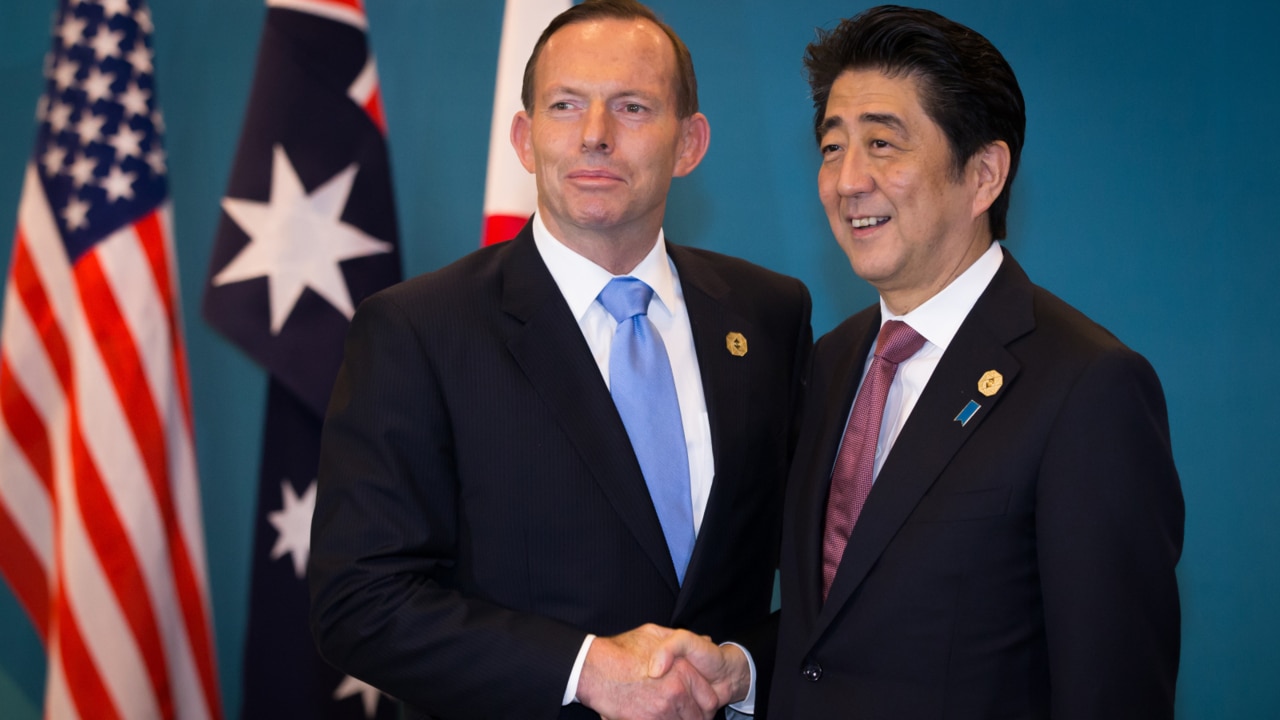
Since 2015, Japan has always joined the massive biannual Talisman Sabre military exercises in northern Australia. And under the new SFA, Australian subs and planes could be forward-based in Japan, where they might help to deter any Chinese assault on Taiwan.
Late last year, Abe said that any attack on Taiwan would pose a “grave danger” to Japan too: “a Taiwan crisis would be a Japan crisis and therefore a crisis for the Japan-US alliance”. Earlier this year, he said that the One China policy should only be respected if the status quo were not altered by force, and called on America to ditch strategic ambiguity and state its readiness to defend Taiwan. Although an ex-PM, his stature meant that these were comments that rang around the world.
In the wake of his death, there’s been some talk that Abe was a “divisive” figure, based on misconceptions about modern Japan. Abe grasped that the devastation of war had forever changed his country and that its challenge was less avoiding militarism than moving beyond pacifism, especially as Beijing’s belligerence grew. He was simply more focused than anyone else on the need for Japan to become a “normal” nation, not one permanently inhibited by previous mistakes.
He had an uncommon sense for what would move people. In 2014, the Australian side thought it had done well with the presentation of an album of rare photos covering his family’s post-war trips to Australia that had done so much to heal wartime scars. He trumped that with bicycle gears that not only touched his visitor but came from the Shimano factory in his own electorate.
A video from Abe is expected to feature in a ceremony at the Japanese embassy in Canberra later this week. Australia has never had a better friend from Japan. It would be remarkably poignant if his last public tribute, words from beyond the grave, should be to this country.
Tony Abbott was the prime minister of Australia from 2013-15.



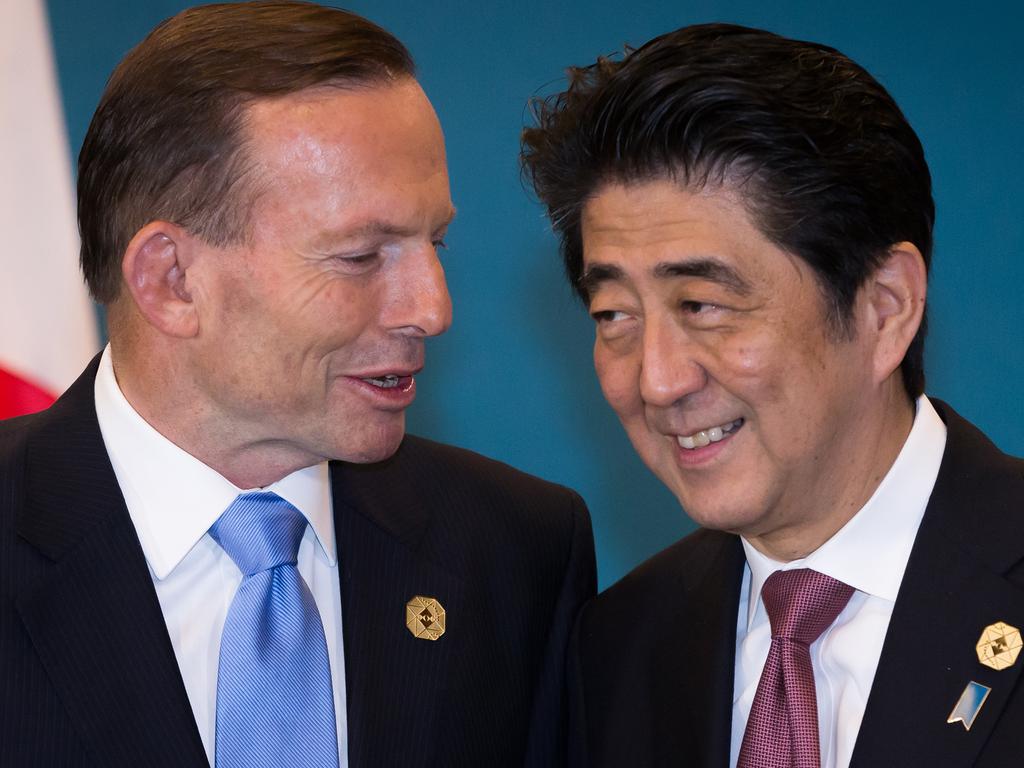
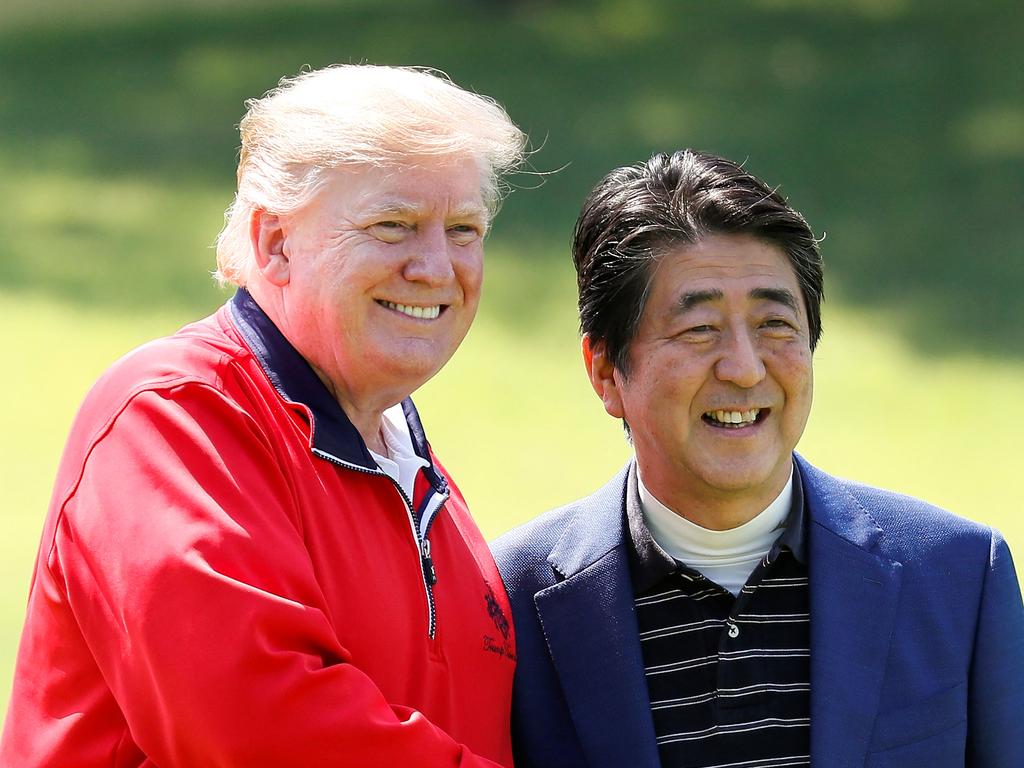

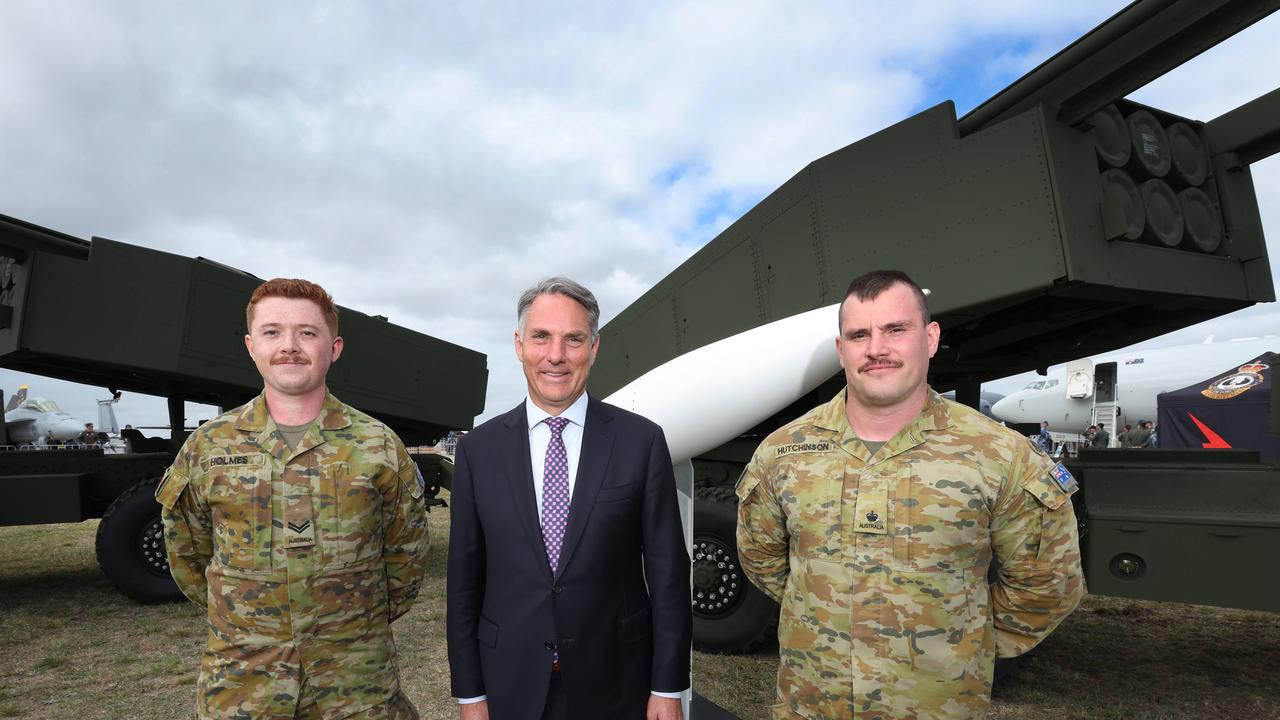
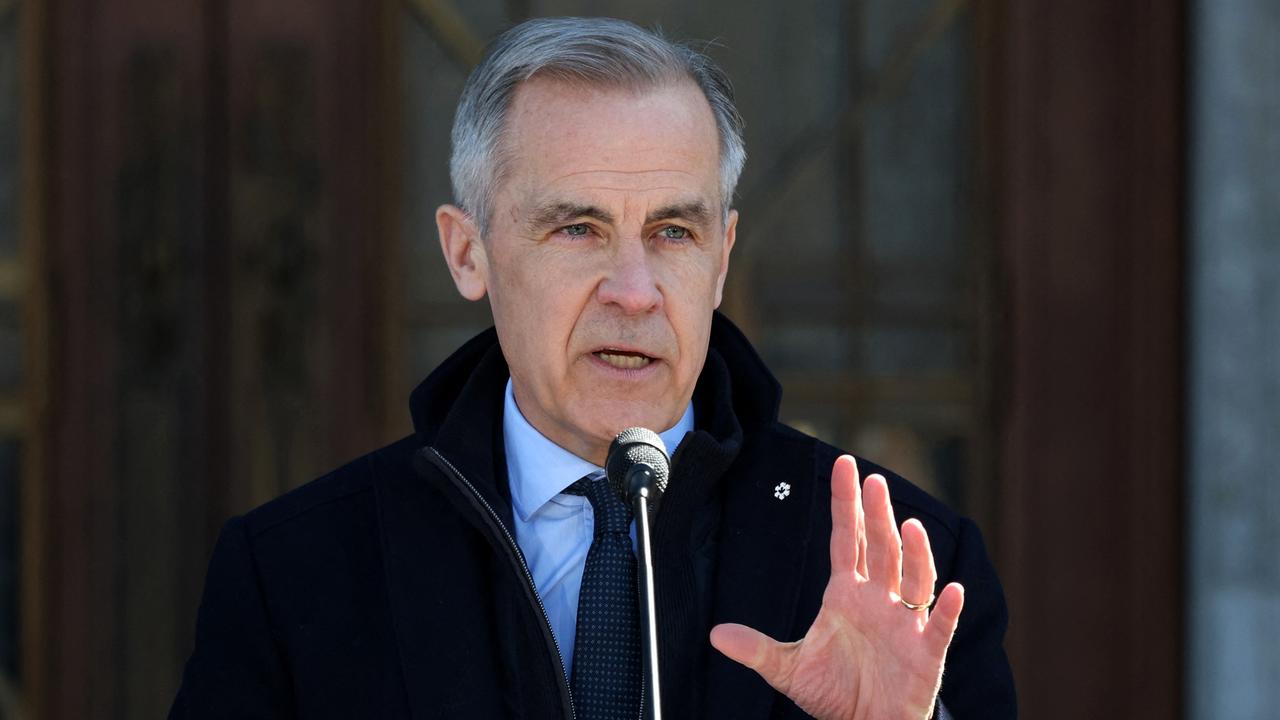
The assassination of Shinzo Abe has sent shockwaves around the world because he was not just a distinguished former prime minister but had established Japan as the leading democracy of the western Pacific. Like most Japanese statesmen, he never fell into the trap of wishful thinking about communist China. Unlike any of his predecessors, though, he took the initiative in creating and sustaining an Indo-Pacific democratic bloc and is rightly regarded as the father of the Quad. The Quad is the most significant geo-strategic development since the formation of NATO and Abe’s relentless focus on bringing it into being marks him out as a supreme strategist.